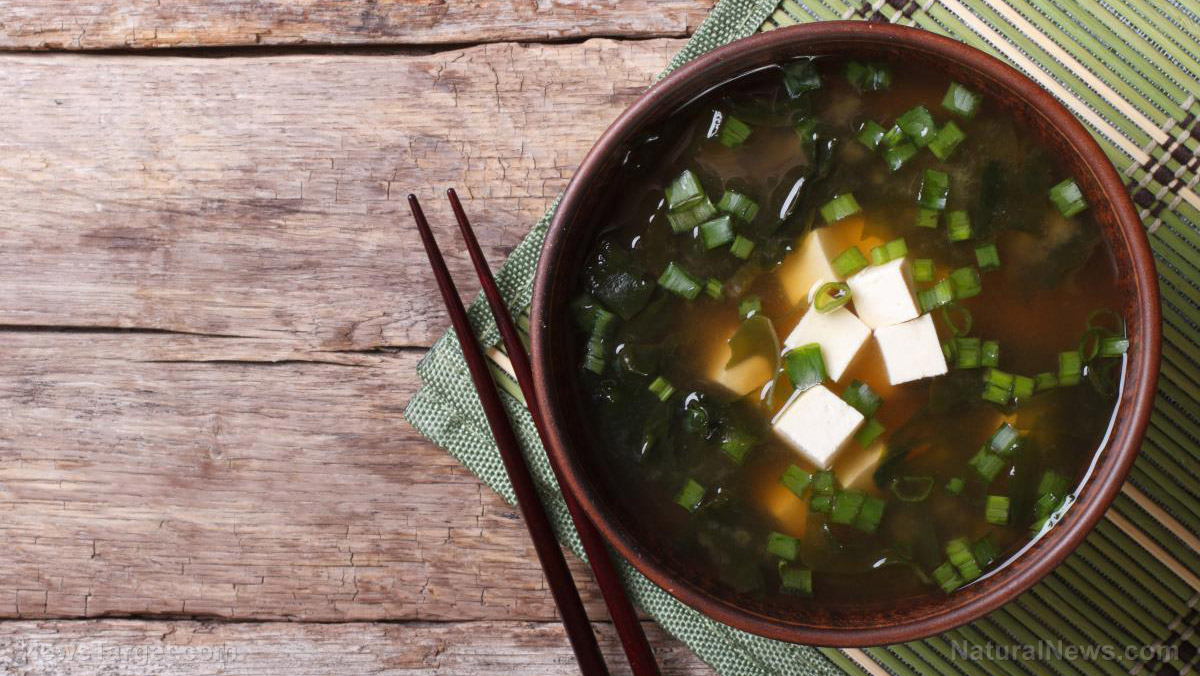Reduce inflammation and improve your mood with these healthy, fermented foods
06/10/2019 / By Zoey Sky

Did you know that probiotics or “good” bacteria can do more than boost your digestive health? If you suffer from inflammation, you can ease your condition by consuming certain kinds of fermented foods.
According to Ali Miller, a registered dietitian and author of “The Anti-Anxiety Diet,” you can improve your gut health and mood and energy levels by adding fermented superfoods to your diet. More importantly, probiotics can strengthen your immune system and minimize inflammation.
Probiotics and your digestive health
At least 80 percent of your body’s immune system is found in the digestive tract. This is one reason why good bacteria are crucial for your immunity.
You can take probiotic supplements to boost your gut health. However, fermented foods are the best (and the more potent) natural sources of probiotics.
Consuming fermented foods offers additional health benefits too. For example, the acidic byproducts of fermentation aid in digestion by promoting the breakdown of the micronutrients and macronutrients in your diet like lactose. This helps relieve bloating and cramps.
Fermentation is a process that occurs when components of foods – e.g., natural sugars – are broken down by bacteria and yeast into other beneficial substances. The end-product of fermentation is a superfood rich in probiotics and other nutrients.
There are different types of fermentation, like culturing, lacto-fermentation, and wild fermentation. Culturing generally refers to food that makes use of a microbial starter to begin the fermentation process. Wild fermentation occurs when microbes naturally found in foods or the air trigger the process.
Lacto-fermentation, a variant of wild fermentation, occurs because of Lactobacillus bacteria. This type of bacteria is usually found on most produce, like the cabbage used for sauerkraut.
If you’re not used to eating fermented foods, they must be gradually introduced to your diet to prevent digestive problems.
Below are four kinds of fermented foods that can relieve inflammation.
Kimchi
Kimchi is a spicy, tangy Korean dish full of probiotics that can boost your overall gut health. This dish is made by fermenting vegetables, like cabbage, with probiotic lactic acid bacteria. (Related: Kimchi is one of the most powerful probiotic foods you can eat.)
Kimchi promotes weight loss and reduces inflammation. It can also lower your risk of metabolic syndrome and prevent cancer growth.
Here are some unique ways to eat kimchi:
- Added to scrambled eggs
- Added to deviled eggs
- As a sandwich topping
- As a topping for a rice bowl
- Make kimchi tacos
- Served with Korean barbecue
- Stirred into fried rice
Miso
Miso is a popular ingredient in Asian cuisine. Known for its “umami” (savory) flavor, miso contains B vitamins, calcium, complete protein, iron, and potassium.
Since miso is fermented, it is rich in beneficial probiotic bacteria. Miso also contains a strain of bacteria that helps improve the symptoms of digestive issues such as inflammatory bowel disease.
If you’re cooking with miso, always add it to hot dishes near the end of the cooking process so you don’t boil all the beneficial bacteria.
Sauerkraut
Sauerkraut is a lacto-fermented food that is often used as a sandwich topping. Aside from its digestive health benefits, sauerkraut is full of fiber that feeds the beneficial bacteria in your gut and boosts digestive health.
Sauerkraut also has vitamin C that can keep your immune system strong and vitamin K that boosts bone health. Always buy freshly made sauerkraut, which is refrigerated, not canned. Its label should say “raw and unpasteurized.”
Yogurt
Plain yogurt without added sugars is good for your gut health. According to research in the journal Microorganisms, yogurt can help boost the number of good bacteria strains in the gut.
This is good news because having fewer strains of good bacteria is linked to a greater risk of developing certain health conditions such as chronic inflammatory diseases, irritable bowel syndrome, obesity, and Type 2 diabetes.
Yogurt is also full of protein. One serving of Greek yogurt can contain about 18-20 g per serving. Yogurt also has calcium, which is needed for maintaining balanced blood sugar and improving your bone health.
Relieve inflammation and boost your digestive health by incorporating fermented superfoods like kimchi, miso, sauerkraut, and yogurt into your diet.
Sources include:
Submit a correction >>
Tagged Under:
This article may contain statements that reflect the opinion of the author
RECENT NEWS & ARTICLES
COPYRIGHT © 2017 SUPER FOODS NEWS





















